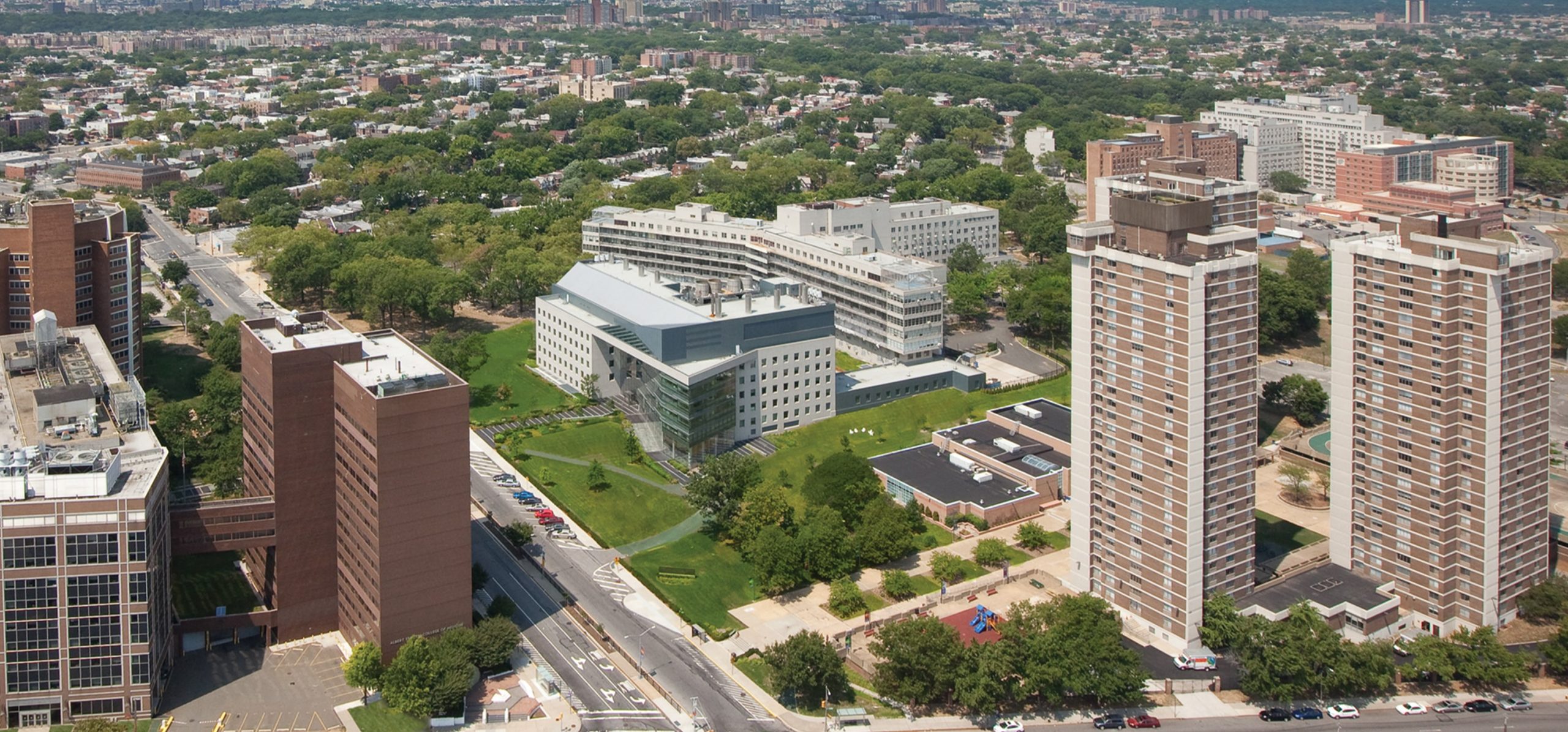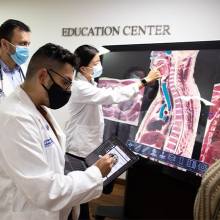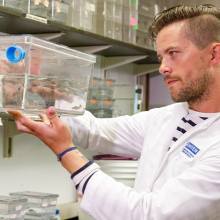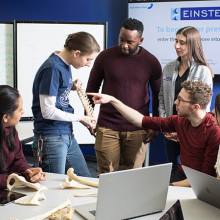
The largest outright gift in Einstein’s history, an anonymous $100 million contribution to the College of Medicine for basic, translational, and clinical biomedical investigations and education programs, was announced in January 2023 by Philip O. Ozuah, M.D., Ph.D., president and chief executive officer of Montefiore Medicine. The transformational contribution will expand Einstein’s research capabilities and provide direct financial support to students and enhance their learning facilities.



“Such a momentous investment is a testament not only to the donor’s generosity and dedication to advancing medical education and research, but also to their confidence in Einstein’s future success and growth,” says Dr. Ozuah. “This inspirational gift will also help us further our commitment to excellence in biomedical research and medical and graduate education and training, and ultimately advance human health in the Bronx, our nation, and the world.”
The historic gift will establish new programs and initiatives, says Yaron Tomer, M.D., the Marilyn and Stanley M. Katz Dean at Einstein. It will “ensure our position as a biomedical and educational powerhouse, generating scientific discoveries and translating research breakthroughs into treatments. In addition, it will have a ripple effect of inspiring other donors to come forward and support Einstein’s research and educational missions,” he adds.
The new programs and initiatives are detailed below.
Currently housed on the sixth floor of the Forchheimer Building, the anatomy lab plays a key role in medical education, providing students with a hands-on understanding of the human body. The anonymous gift will equip Einstein students with the most up-to-date technology in a renovated 17,000-square-foot space in the Van Etten Building, which will also house a new functional anatomy and surgical skills center. The vacated Forchheimer space will be converted into 3,500 square feet of research labs for investigators.
“With the new anatomy lab joining our Clinical Skills Center in the Van Etten Building, the site will become the hub for hands-on training and evaluation for our medical students,” says Joshua Nosanchuk, M.D., senior associate dean for medical education at Einstein, “and will enrich the students’ educational experience with state-of-the art facilities.”
One of Einstein’s priorities is to support highly qualified students who are least able to afford tuition at the College of Medicine. The anonymous donor has committed $15 million for need-based scholarships for medical students. (See “$15M Gift,” Winter/Spring 2023 issue.) The donation consists of two parts: a $10 million outright gift for student support, plus another $5 million endowment to match other scholarship donations ranging from $50,000 to $250,000. Since the announcement, the matching gift offer has inspired $3 million in further donations, primarily from alumni.
Einstein’s graduate division provides exceptional education and training to more than 200 Ph.D. candidates who drive research at the College of Medicine. While at Einstein, graduate students mature as scientists under the guidance of their mentors and become prepared for their careers in science and industry.
The gift will provide generous support to enable the enrollment of several new Ph.D. students each year, covering tuition and a stipend for their first year on campus before they commit to specific labs. The funding will also provide supplemental support for labs lacking resources for graduate students.
While the National Institutes of Health (NIH) finances the vast majority of research projects conducted at Einstein, the NIH is disinclined to fund high-risk/high-reward research. Philanthropy plays a critical role in filling this gap. The gift will supply funds for investigators launching new research projects and advancing promising findings from the lab to the clinic.
Crucial support for Einstein’s investigational enterprise is provided by more than 40 college-sponsored research facilities offering a wide range of cutting-edge analytic, engineering, and production services focused on work with proteins, genes, cells, and tissues. The gift will finance the purchase of state-of-the-art instruments and equipment, to provide our researchers with the newest technologies.
“Our researchers cannot make scientific breakthroughs without access to the most up-to-date equipment supported by highly trained staff in our shared facilities,” says Harris Goldstein, M.D., senior associate dean for scientific affairs. “This gift is critical to ensure that our researchers can pursue the most-creative and technologically advanced research and that we recruit the finest faculty, postdocs, and students and secure highly competitive NIH grants.”